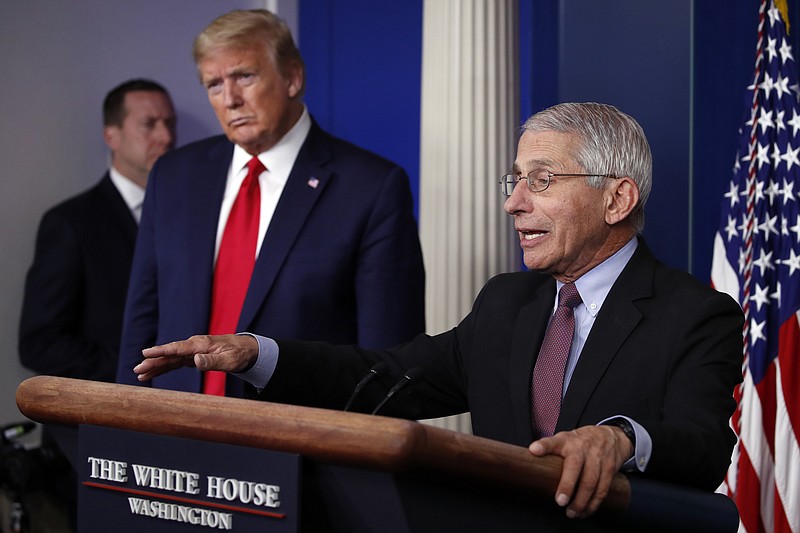The 2020 presidential election, according to a recent postmortem by former President Donald Trump's pollster, turned not on voter fraud but on the president's handling of the coronavirus.
The 27-page report by pollster Tony Fabrizio confirmed what we felt and wrote during the year - that it was not his alleged Russian collusion, not his Ukrainian telephone call, not his income taxes, not his previous extra-marital affairs, not his media-bashing and not his caustic comments. But it was his overall handling of the global pandemic in the United States that brought him down.
The virus was the "top issue" in 10 battleground states, including five Trump won twice and five he won in 2016 but lost in 2020, according to the report.
"The document clearly shows that the advisers around the president placated him into a loss," the Washington Examiner quoted an anonymous Trump ally as saying Monday.
Voters in the surveyed states, according to an analysis of exit polls, "prioritized stopping the spread of [the coronavirus] over re-opening the economy."
We are not privy to what all was asked of voters, but we imagine some Americans were fine with not working or having their businesses shut down as long as they kept getting checks from Washington, D.C.
Trump, though, knew that was not a sustainable solution and pushed governors to open their states' economies sooner rather than later.
For us, and we would guess for many Americans, the president failed during the early months of the coronavirus by:
* Not rallying the nation with a positive, can-do attitude on beating the pandemic. Though the crisis came with no playbook, presenting a united, we'll-get-through-this front might have gone a long way.
* Not adopting the importance of wearing masks once epidemiologists decreed - after much indecision - that they would make a difference. The president even could have said he didn't want to wear a mask but would if it would stop the spread of the virus faster. Modeling that behavior for the country might have soothed the minds of many voters.
* Not letting his epidemiologists and scientists do most of the talking at the early nightly White House briefings. But Trump, being Trump, couldn't relinquish the spotlight, and many viewers may have been more confused after some of his comments than when they tuned in.
* Not promoting social distancing and mask-wearing at his rallies and White House events. If he had, he could have pleased his supporters with his presence and showed that the country's business was being carried out - all in a safe manner.
The support for Trump, according to the report, fell furthest among white, college-educated voters. In that sector, it said, he suffered "double-digit erosion across the board."
In that, evidently, the virus was ground zero because voters gave the president a "6-to-1 or better margin" over challenger Joe Biden on the economy in general and didn't find him or Biden generally "honest and trustworthy."
However, nine out of 10 voters had settled on their choice before the final month before the election.
Trump, according to the report, "needed late deciders to break in his direction in the states we flipped [in 2016], but that did not materialize."
In the states that did revert from Republican to Democrat, though, the president received negative marks on his handling of the virus and was found to be less honest and trustworthy than Biden.
It's all water under the bridge now, but it does back the conjecture that without the effects of the pandemic, Trump likely would have been re-elected handily or, at the least, with a similar popular-vote deficit and Electoral College advantage as he had in 2016.
The pollster's analysis probably was not likely received well by the former president. But it would - it seems - have good news for future Republican nominees.
If the election turned largely on the virus - a once-in-a-century eventuality - a non-Trump GOP candidate should have no less than an even chance of winning any other time.
Other factors to be considered by 2024 are control of Congress, the state of the economy and Biden's choice - he'll be 82 in the same month as the election - of whether he'll run again.
But perhaps the report by one of Trump's own officials can at least convince some skeptics - who were sure his loss was the result of a huge amount of voter fraud (which has never been proven) - about exactly why his defeat in November occurred.
